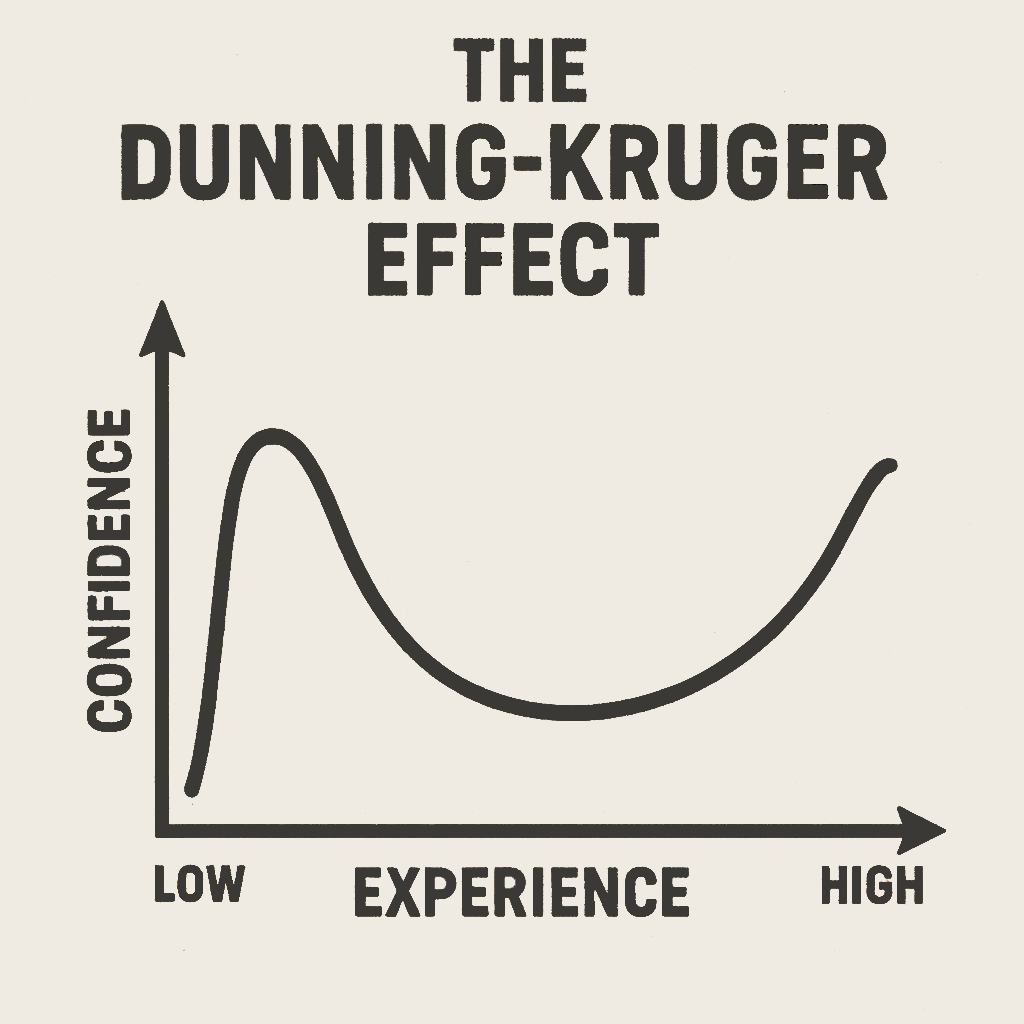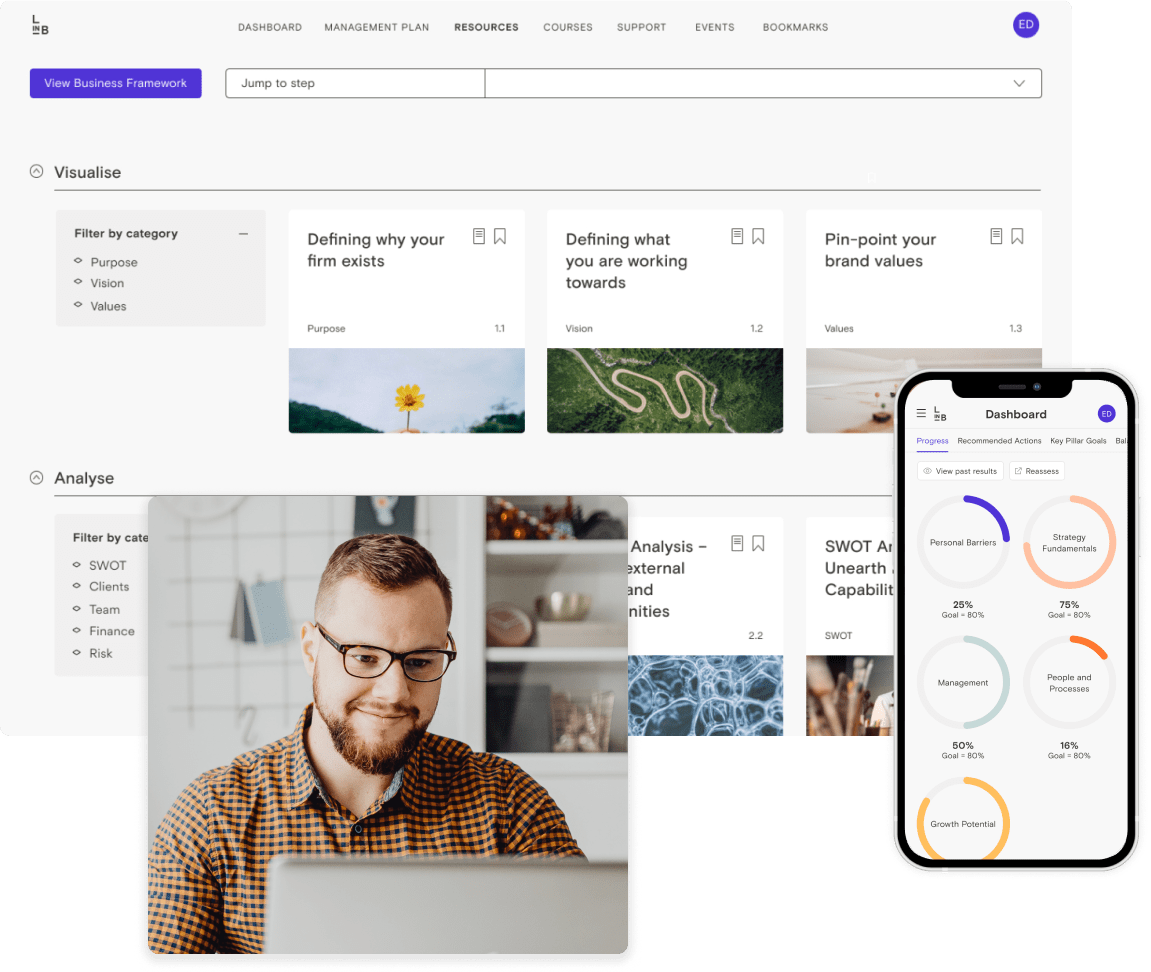

“If you feel like an imposter, it’s because you have the humility to know you’re still growing.”
– Brené Brown
The moment an accountant considers stepping into advisory, a quiet voice of doubt often follows.
“How am I qualified for this?”
“What if I don’t know enough?”
“Why would a client trust my advice on running their business?”
That’s not self-pity and it’s certainly not weakness. It’s the side effect of a professional upbringing built on precision, expertise, and getting things right.
In fact, the irony for high-performing accountants hesitating on the cusp of advisory is that a surplus of competence is the cause of their self-doubt.
How is that even possible?
Here’s the paradox laid out clearly: the more capable you are, the more likely you are to question your capability.
It’s called imposter syndrome, and it’s particularly common among professionals with high levels of technical training. You’ve been taught to work within clear frameworks, double-check when in doubt, and avoid giving an opinion that can’t be backed by a number or a law.
So, when strategic advisory presented itself as a new role in accounting, one less about answers and more about insight, it’s no wonder that it felt like foreign territory.
But why is it that the more senior you become in your role, the more foreign that territory feels? Shouldn’t we all reach a breakpoint eventually where we feel ‘ready’ for advisory?
To answer these questions, let’s bring a little bit more psychology into the picture with a phenomenon you’ve probably heard about even if you’re new to the concept of imposter syndrome.
The Dunning-Kruger effect explains that people with limited competence in a specific area often overestimate their abilities. But you’re a seasoned accountant with a wealth of experience, why would someone fresh out of university be more confident in becoming an advisor than you, as this theory implies?
Once again, consider how much knowledge you’ve drawn on to build your apprehensions around advisory, and you’ll see the parallel to imposter syndrome in that the more you know, the better you understand what you don’t know.

But it’s important to reiterate that acknowledging you’re under the effect of these phenomena is not weakness, it’s self-awareness.
Reframe it this way instead: if you’re doubting your readiness to give business advice, then chances are you’re already operating at the level of thoughtfulness and aptitude that high-impact strategic advisory requires. Better yet, you’re probably already doing advisory in some capacity, all that’s really missing is that you haven’t committed to it, formalised it, and given yourself credit for the win yet.
Let’s remove the word “advisory” for a second. Instead, think about how often you:
These are strategic conversations. They’re future facing. They’re impactful.
That’s advisory.
The only difference between that conversation and a formal advisory service is structure, naming, and intention.
If you still struggle to feel like an advisor, here are some practical and proactive ways to reframe and reinforce your readiness:
Self-belief becomes credibility, but only when you double down on what you do well. Are you exceptional at clarifying complexity? Helping clients zoom out? Bringing structure to chaotic situations? Make those strengths visible, and lead with them. These are the zones where you’re already showing up as an advisor. When you name and own them, you build a powerful internal case that supports your advisory identity.
Don’t try to build your credibility in a vacuum. Find someone further along the advisory journey who can reflect what they see in you. A mentor can help you spot blind spots, challenge your assumptions, and affirm the value you already bring. Equally important: seek unfiltered feedback from trusted peers or leaders. Ask, “Where do you see me helping clients the most?” or “What part of my thinking do you think clients lean on most?” Their honest answers often carry insights your self-perception is missing.
Confidence grows when action meets awareness. With your strengths identified and a mentor at your back, start mapping out where you feel less equipped to advise. Then, commit to targeted learning like a short course, workshop, or shadowing opportunity. Advisory isn’t a fixed skillset; it’s a layered one. Every time you upskill in a meaningful area you’re stacking another brick in your advisory foundation.
By now it should be clear that you already are advising. That realisation is powerful but turning it into a service your clients trust requires more than insight. Clients gain confidence in your advice when they can sense your confidence behind it. That doesn’t mean knowing everything, it means bringing structure, consistency, and intention to the way you show up. So how do you turn your growing confidence into something clients can tangibly experience? Start with these three ways to bring structure, visibility and depth to your advisory approach:
Tools such as goals diagnostics, business assessments, or structured meeting frameworks create reliability around your insight. They make your thinking visible and when clients see structure, they trust the advice even more. It gives you a consistent, confident entry point into advisory conversations.
Packaging a service gives it shape. Define the scope clearly and use that to set expectations around what’s actually being delivered, then assign a value-based price. When clients understand the journey they’re stepping into and you have a consistent way to deliver it, you shift advisory from a “nice extra” into a professional offering.
Advisory doesn’t mean doing everything yourself or restricting your advisory offering to just what you know. If you don’t have deep marketing or sales knowledge, partner with someone who does and use guided referrals to build your client experience. The value in advisory is that you’re helpingclients think better. If that means getting them in contact with a mindset coach for example, don’t close the door to the opportunity, get partnered with one and help them help you. Why would a client go anywhere else with their concerns when you can facilitate solving all their business problems?
Feeling unsure about giving advice doesn’t make you unqualified. It makes you reflective, thoughtful, and intentional; all traits that great advisors, and great leaders, have in common.
Imposter syndrome thrives in silence. It tells you confidence must come before action, when the reality is that confidence follows action. When you start considering how you’re already advising, structuring your thinking, packaging your value, and showing up with consistency, you begin stepping into the leadership role advisory demands.
This journey isn’t about faking confidence or hesitating because you don’t “know enough.” It’s about recognising that your experience, humility, and client-first mindset are the foundations of trusted advisory.
You’re not on the outside looking in. You’re already inside, emerging, evolving, and leading in a new way.
